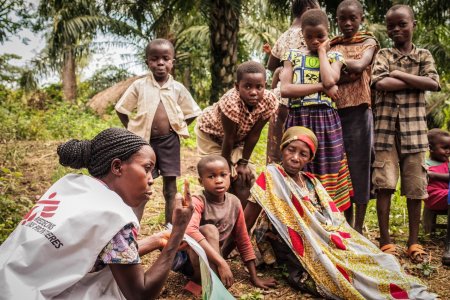
Grounds for divorce ? MSF and the international criminal court
Françoise Bouchet-Saulnier
In 1998 MSF decided to support the creation of the International Criminal Court. Whether as victims or witnesses, it seemed obvious that we should participate in this initiative in the name of the protection of populations and the construction of a ‘more just international public order'. 10 years later MSF stated that it ‘would not cooperate and would not transmit any information to the ICC'. The organisation needs to keep its distance from the ICC, as from any other political body.
How can we explain this change of position? Is it Justice or MSF that has broken its promises? What is our position regarding the arrest warrant issued in March 2009 against the President of Sudan and the consequent retaliation against NGOs working in Darfur? Françoise Bouchet-Saulnier looks back at the relations between MSF and judicial proceedings, the theme of a publication in the Cahier du Crash series in 2007 by Fabien Dubuet.
Table of contents
1. Introduction
2. Legal testimony, an extension of humanitarian advocacy
3. MSF's reaction to the creation of the International Criminal Tribunal for ex-Yugoslavia
4. Testimony of a an MSF volunteer at the International Criminal Tribunal for Rwanda
5. Why and how not to testify ?
6. The turning point of the ICC
7. MSF's position in 2004
8. The question of individual testimony
9. How does the ICC impact MSF's public communication policy?
10. Testimony and punishment
11. NGOs, Human Rights organisations and the ICC/ Comment by Kate McIntosh, MSF Holland
12. The difference between being a direct eye witness and passing on second-hand information/ Rony Brauman
13. Remain silent or testify ?
14. What are the confusions about relations between MSF and the ICC ?
15. MSF : perpetually evolving policies
16. MSF : the weak link on the international stage ?
17. Fight against impunity or punishment ?
To cite this content :
Françoise Bouchet-Saulnier, “Grounds for divorce ? MSF and the international criminal court”, 8 avril 2009, URL : https://msf-crash.org/en/conferences-debates/grounds-divorce-msf-and-international-criminal-court
If you would like to comment on this article, you can find us on social media or contact us here:
ContributePast events
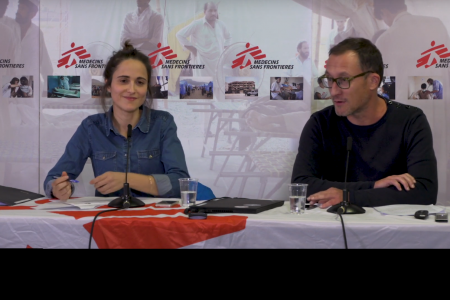 Conference
Conference
Motivations for mass violence: different interpretations
10/03/2019 - 06:00 PM 08:00 PMConference – debate, Thursday, 3 October 2019, 6-8pm, 1st floor meeting room at MSF, 8 rue Saint Sabin. Streaming and simultaneous translation into English available.
What turns ordinary men into killers? The CRASH team invited you to a conference – debate with the sociologist and historian, Nicolas Mariot, author of an article entitled « Faut-il être motivé pour tuer? Sur quelques explications aux violences de guerre » (Genèses, n°53, 2003, p. 154-177) and books such as “Face à la persécution. 991 Juifs dans la guerre" (with Claire Zalc, Paris, Odile Jacob, 2010), “Tous unis dans la tranchée ? 1914-1918, les intellectuels rencontrent le peuple" (Paris, Seuil, 2013). Nicolas Mariot presented two different interpretations of motivations for mass violence in the 20th century, drawn from a series of studies and surveys on the subject.
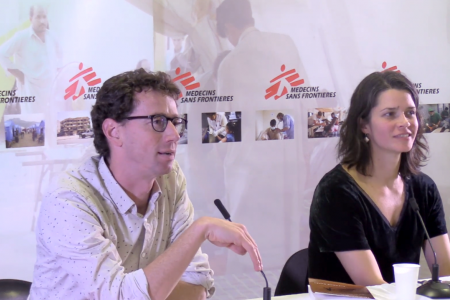 Conference
Conference
Third-Worldism and Sans-Frontiérisme 1954-1988
04/11/2019 - 06:30 PM 08:30 PMEleanor Davey, historian of ideas and humanitarianism, senior lecturer at the Humanitarian and Conflict Research Institute, University of Manchester, discusses her book, Idealism Beyond Borders. The French Revolutionary Left and the Rise of Humanitarianism, 1954-1988, devoted to the intellectual history of sans-frontiérisme and Third-Worldism, in France, from the Algerian war to the early years of Médecins Sans Frontières.
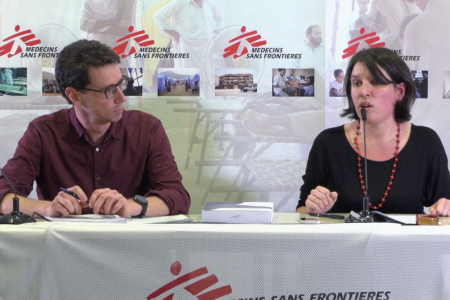 Conference
Conference
Healing foreigners in France: The State and the civil society organisations from the 80s to the 90s
12/17/2018 - 06:00 PM 08:00 PMThe CRASH team invited you to the debate-conference “Healing foreigners in France: The State and the civil society organisations from the 80s to the 90s” on Monday 17th of December 2018 from 6 to 8pm, in the 1rst floor room at the 8 rue Saint-Sabin. We hosted Caroline Izambert, who recently defended, at the EHESS, her PhD thesis focusing on the foreigners’ access to healthcare in France. Her title: “Heal foreigners?” The State and the civil society organisations for the health coverage of the poor and foreigners in France from the 1980s to the present day.
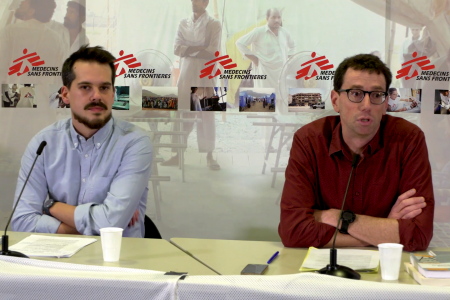 Conference
Conference
Borders and Hospitality
11/26/2018 - 06:00 PM 08:00 PMConference/debate with Benjamin Boudou, political scientist and researcher at the Max Planck institute.
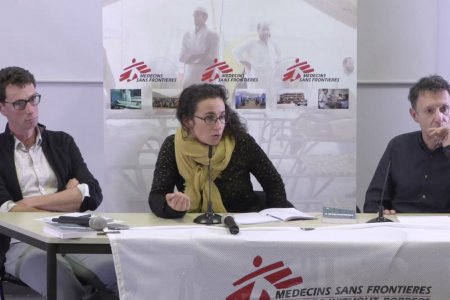 MSF-Crash
Conference
MSF-Crash
Conference
Immunization: new perspectives on vaccines - Conference with Lise Barnéoud
12/05/2017 - 06:00 PM 08:00 PMWho profits from vaccination? Individuals? Society? Companies? Is vaccination efficient? Is it dangerous? Profitable? What are the factors influencing public opinion in this domain? Lise Barnéoud, science journalist and author of Immunisés ? Un nouveau regard sur les vaccins, has engaged in an investigation revealing multiple - and sometimes contradictory - realities observed in the French vaccination sector. She has carried out her investigation from three distinct viewpoints: the one of a mother who needs to decide whether to vaccinate her children or not; of a journalist leading an enquiry; and of a scientist analyzing how facts are built.
Lise Barnéoud was a Crash guest speaker at a conference on vaccination held on December 5, 2017. A discussion with Epicentre, Crash and the MSF Medical Department allowed us to exchange views on vaccinal policy, which remains a cornerstone of MSF operations and a recurring subject of discussion and controversy.
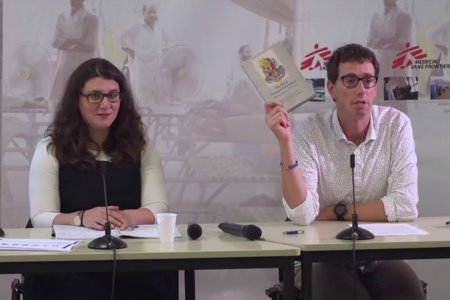 MSF
Conference
MSF
Conference
Humanitarian anthropology : conference with Sharon Abramowitz
10/23/2017 - 06:00 PM 08:00 PMSharon Abramowitz is an anthropologist and a visiting researcher at the Department of Anthropology at Rutgers University, co-editor of recently published Medical humanitarianism. Ethnographies of practice. She has devoted much of her work to responding to epidemics - most recently in Ebola, and in West Africa, Liberia in particular.
During the conference organized by MSF-Crash on 23 October 2017, she discussed the contribution of medical anthropology to humanitarian action as well as her latest book and most recent projects.

